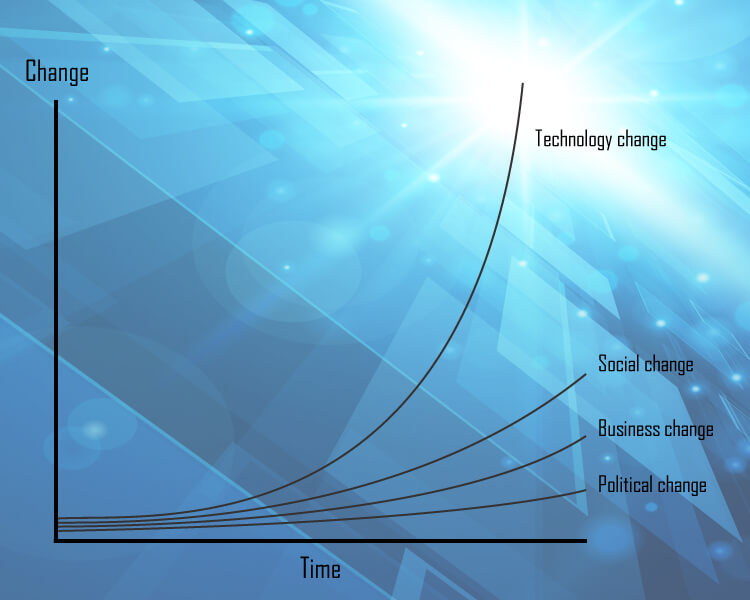1711
Serious / Capitalism won't last forever
« on: September 23, 2014, 01:11:32 PM »
Most of you probably know me now as the fairly conservative - at least economically - guy. While I agree that everybody should be sceptical of social democracy and the capacity for governments or technocrats to get things right, and that State meddling tends to be harmful, one thing is clear; capitalism can't last forever.
I'm going to post a video by CGP Grey which highlights the fundamental point here: technological growth.
TL;DW All throughout human history, people have specialised and divided in their labour - a trend which has, since Adam Smith, been the fundamental driving force of prosperity and the creation of new technologies has accelerated the trend. As mechanical muscles replace labour, so too will mechanical minds replace mental labour.
CGP Grey introduces us to Baxter, an incredibly intelligent, general purpose robot that could potentially replace a lot of unskilled labour.Also, there's the giant network of robots coming for barristas, and this robot remembers who you are and how you like your coffee. The real technological change isn't in the expensive new stuff, but the stuff of yesteryear getting cheaper and cheaper. Mechanical minds is going to push human labour out of the economy.
As an example, the automation of transportation (on the roads, inside factories or in pit mines) is here and coming rapidly. The transportation industry also employs 3.6 million people in the U.S. alone. Worldwide, that's about 70 million jobs - minimum. The immediate reaction is to claim that this will only, largely, effect unskilled labour. Software bots could replace administrative and white-collar workers, potentially sooner as they are much less expensive and much more efficient than physical robots.
The unemployment rate during the Great Depression was 25%, the list - according to CGP Grey - of the most vulnerable jobs in the U.S. amounts to 45%.
Essentially, the question is one of what to do when massive social instability is caused by unemployment, despite the fact that we will be more resource- and technology-abundant than ever before. I don't know when this will happen, and I'm sceptical it'll happen as soon as CGP seems to imply, but I'm certain it'll at least begin within my lifetime.
Now, I don't know what to do. It's clear that capitalism simply cannot last, and I wouldn't be opposed to market socialism if it weren't for the fact that human labour will become redundant. I don't know whether a market will come along to determine the supply/demand for certain goods, nor do I know how that'd be calculated, but it's clear that humanity - at some point in time; likely soon - is going to face a technological and economic paradigm shift.
It's probably best summed up by this non-scientific, purely symbolic graph:

By January 2015, driverless cars are going to be trialed in three cities in the U.K. This sort of automation will likely not be as significant as the techno-optimists would hope, but it's significant enough and soon enough to cause worry. Whatever the outcome, it's quite clear that with technological evolution, our economic paradigm is going to be made pointless.
And I have no idea what to replace it with.
I'm going to post a video by CGP Grey which highlights the fundamental point here: technological growth.
YouTube
TL;DW All throughout human history, people have specialised and divided in their labour - a trend which has, since Adam Smith, been the fundamental driving force of prosperity and the creation of new technologies has accelerated the trend. As mechanical muscles replace labour, so too will mechanical minds replace mental labour.
CGP Grey introduces us to Baxter, an incredibly intelligent, general purpose robot that could potentially replace a lot of unskilled labour.Also, there's the giant network of robots coming for barristas, and this robot remembers who you are and how you like your coffee. The real technological change isn't in the expensive new stuff, but the stuff of yesteryear getting cheaper and cheaper. Mechanical minds is going to push human labour out of the economy.
As an example, the automation of transportation (on the roads, inside factories or in pit mines) is here and coming rapidly. The transportation industry also employs 3.6 million people in the U.S. alone. Worldwide, that's about 70 million jobs - minimum. The immediate reaction is to claim that this will only, largely, effect unskilled labour. Software bots could replace administrative and white-collar workers, potentially sooner as they are much less expensive and much more efficient than physical robots.
The unemployment rate during the Great Depression was 25%, the list - according to CGP Grey - of the most vulnerable jobs in the U.S. amounts to 45%.
Essentially, the question is one of what to do when massive social instability is caused by unemployment, despite the fact that we will be more resource- and technology-abundant than ever before. I don't know when this will happen, and I'm sceptical it'll happen as soon as CGP seems to imply, but I'm certain it'll at least begin within my lifetime.
Now, I don't know what to do. It's clear that capitalism simply cannot last, and I wouldn't be opposed to market socialism if it weren't for the fact that human labour will become redundant. I don't know whether a market will come along to determine the supply/demand for certain goods, nor do I know how that'd be calculated, but it's clear that humanity - at some point in time; likely soon - is going to face a technological and economic paradigm shift.
It's probably best summed up by this non-scientific, purely symbolic graph:

By January 2015, driverless cars are going to be trialed in three cities in the U.K. This sort of automation will likely not be as significant as the techno-optimists would hope, but it's significant enough and soon enough to cause worry. Whatever the outcome, it's quite clear that with technological evolution, our economic paradigm is going to be made pointless.
And I have no idea what to replace it with.









